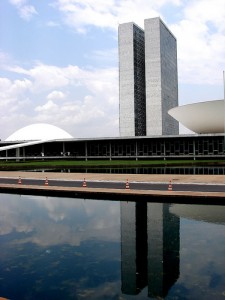While the Ministry of Culture’s much-talked about, controversial copyright reform bill has yet to reach the Brazilian National Congress, a deputy from the Partido dos Trabalhadores, Nazareno Fonteles, has jumped the gun with his own take on the subject.
Bill 3133/2012, introduced February 7th in the Chamber of Deputies, is not exactly a new proposal. It is heavily inspired by the first draft of the Ministry of Culture’s text–a very forward-looking, progressive bill, when compared to both the current legislation and the more recent versions of the Ministry of Culture’s proposal.
Besides promoting a major overhaul on the very foundations of copyright law, adapting it to comply with the Brazilian Constitution, antitrust and consumer protection law, the bill also greatly expands the list of limitations to copyright, and establishes much-needed checks on collective rights management. Also encouragingly, the proposal’s explanatory notes mention that improving access to knowledge is the major reason for an urgent copyright reform.
It is difficult, however, to evaluate Bill 3133/2012’s potential impact on the future of Brazilian copyright law. It will certainly be appended to the Ministry of Culture’s proposal, which carries the weight of being the result of a public consultation with almost 8000 contributions. On the other hand, the changes that took place in the Ministry of Culture under Ana de Hollanda have led a to a draft that is less than ideal, particularly where it concerns the regulation of Brazil’s notoriously problematic collective rights management organizations.
Regardless of its chances of survival, Bill 3133/2012 has the positive effect of forcing Congress into considering the language of the first draft of the copyright reform text–in many ways a superior effort. Since yet another set of proposals is likely to be introduced as a consequence of an ongoing congressional investigation on ECAD (the Brazilian central office for collecting societies), at least 3 conflicting bills will clash in a lively legislative debate over the next years.





